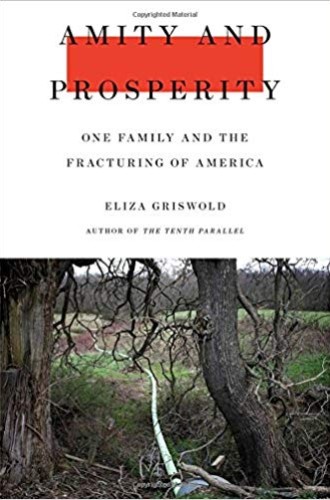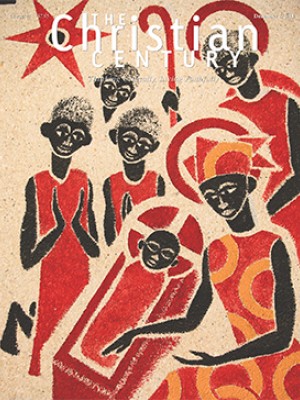A Pennsylvania family destroyed by fracking
Eliza Griswold tells the story of an industry and the people it hurts.
Before reading this book, I paid very little attention to fracking, the process of forcing water and chemicals into cracks deep within the earth to release natural gas. Fracking did not touch me: my tap water was fine in Nashville, and in church I didn’t sit next to anyone who was dealing with a nearby waste pond or fracking compressor station. Although conversations about the extraction process often focus on Appalachia, the area of the country in which I was raised, I’d have needed to traverse a few degrees of separation to find a person whose life has been altered by fracking. Eliza Griswold has found three such people in the Haney family of Amity, Pennsylvania.
After publishing an acclaimed book of contemporary poems from women in Afghanistan, Griswold decided to turn her attention to “how we tell stories about systemic failings here in the United States.” Specifically, she wanted to explore what she calls the “resource curse” in which destitute people live on land that is valuable for what can be extracted from it. “I wanted to tell a story about people who were paying—and getting paid—for America’s energy,” she writes, “and to look at how that experience fed not only poverty but also a deeper sense of alienation.”
Read our latest issue or browse back issues.
Griswold frames this particular fracturing as ultimately spiritual in nature. In an introductory note, she uses an epigraph that makes her stance clear: “The Appalachian problem doesn’t seem to me to be political, economic, or social. I believe it is a spiritual problem and its name is greed” (from Our Appalachia: An Oral History, edited by Laurel Shackelford and Bill Weinberg).
Griswold moves from the abstract to the real by introducing Stacey Haney and her son and daughter, Harley and Paige, who live in rural southwestern Pennsylvania. Haney is a single mother and full-time nurse. Her family has lived in this area for more than 150 years, and she and her children hope to continue this tradition. Griswold met Haney in 2011 at a meeting in West Virginia for farmers who were concerned about fracking. After observing the changes to Amity and nearby Prosperity caused by the fracking industry, Griswold traces their impact on members of the Haney family.
Haney’s story reveals that the most significant consequences of fracking are not what I thought they were—damage to the beauty of the land and animals’ habitats, soil erosion, unsightly industrial equipment, and the like. Haney, her children, and her neighbors discover that their very lives and those of their animals are at stake.
Haney’s son is transformed from an athletic teenage boy who enjoys riding four-wheelers to a sickly, skeletal depressive who lacks the wherewithal to endure a simple day at school. Harley’s health improves after Haney relocates her family away from the fracking waste pond near their house (they live in an RV in her parents’ driveway). Doctors eventually confirm the presence of harmful metals and chemicals in Harley’s blood that could have come only from the leaking pond. Haney, her daughter, and her neighbors begin to have significant health problems of their own, and several pets and farm creatures mysteriously die.
One might ask how waste ponds and other byproducts of the fracking process ended up so close to Haney and her neighbors. Wouldn’t someone need to give these companies permission to be on this land or sell it to them outright? Here Griswold’s framework of greed comes into play. Haney and her fellow nurses heard stories, “rural myths really,” about poor farmers who became overnight millionaires in the early 2000s when forms for negotiating oil and gas leases began to appear in mailboxes. Within a few years, “shiny SUVs of the land men who negotiated the leases appeared on the back roads of Amity.” Like other residents, Haney wanted in on the action. “These new leases sprang from the ground,” Griswold writes, “a rare win in a place that had been losing for generations.”
Griswold shows her cards in the beginning of the book when she notes that Haney did not hire an attorney for her lease’s signing, “and now Stacey regretted it.” The reader knows what is to come. The majority of the pages detail the frustrations, injustices, and bold-faced lies fueled by greed, this time on the part of the fracking industry. One kind of greed got one family into this mess, and another kind of greed keeps them in it when they want out.
The difference in power between the two parties, however, reveals the ultimate sin. The fracking story pits the powerful fracking industry, a huge source of jobs and profits, against the local “hoopies.” Griswold makes this conflict real for those of us who aren’t in the middle of it.







